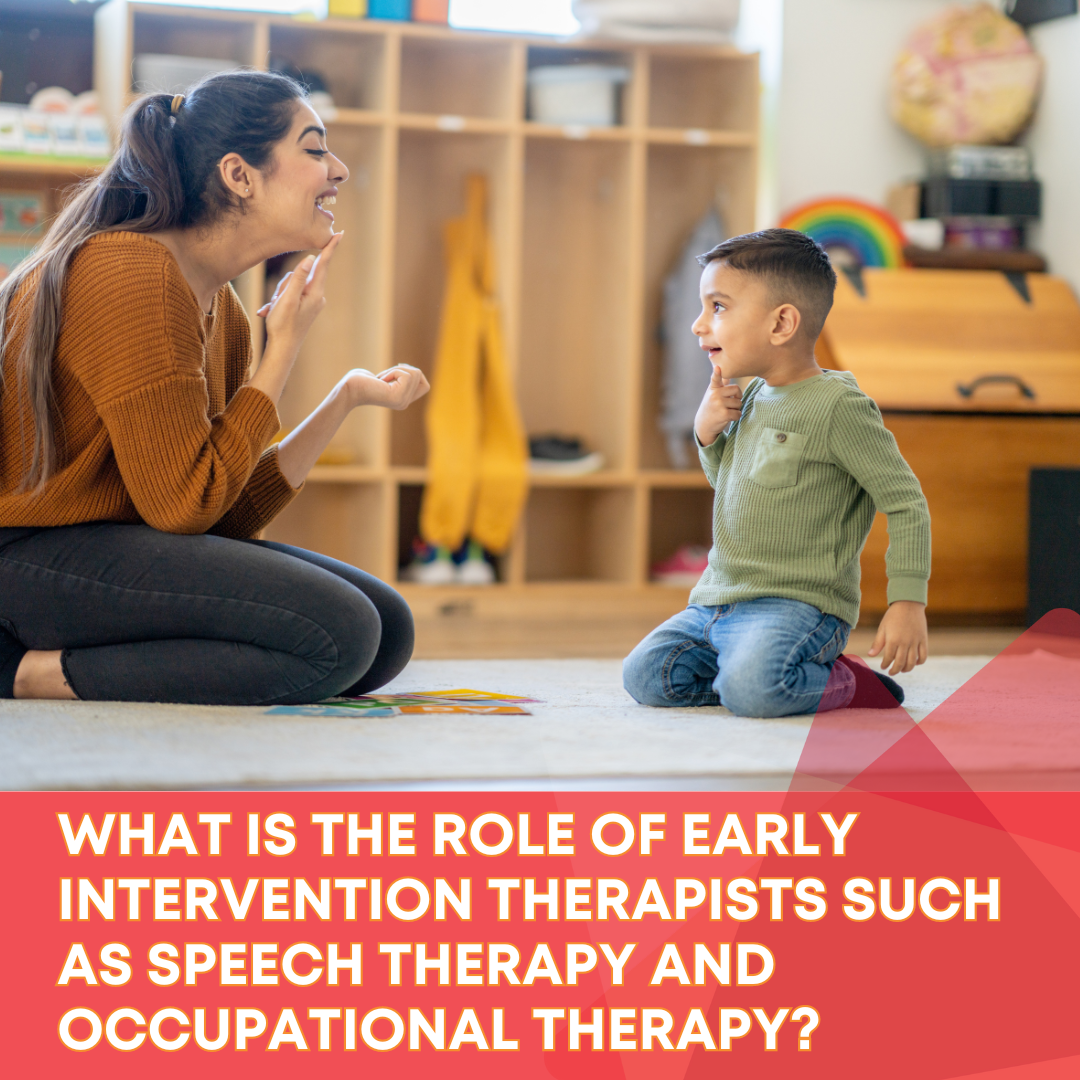The Early Years Learning Framework outlines that “Children’s learning is ongoing and each child will progress towards the outcomes in different and equally meaningful ways. Learning is not always predictable and linear.”
All children reach their developmental milestones at different stages and in different ways, however having that in mind some children will still show that they are slower in reaching some of their milestones. Some of the indicators may include physical, emotional, social, communication and thinking skills and may require additional support from early intervention therapists.
These can show up in the way children move, communicate, think, play and behave by themselves and with other adults and peers. At times, with the right therapy these delays may be short term and other times they may be long-term requiring consistent therapy for children to be able to be supported in the best way possible.
You may first hear that your child may require additional support with reaching their milestones from your child’s maternal health nurse, educators at early learning centres, or your child’s GP. If you are worried about your child’s development, it is best to speak to these professionals to get a better understanding of your child’s learning and developmental needs and whether you will need to establish short term or long-term goals to be able to help your child reach these.
Developmental delay does not necessarily mean that your child has a disability of learning impairment and may be supported from short term intervention such as by a qualified speech therapist and occupational therapist. Other early intervention supports include, audiologist, physiotherapist, psychologist, dietician/nutritionist, behavioural therapist. You may need to engage with one therapist or a multi-disciplinary team of therapist for your child depending on their needs and goals through Early Childhood Intervention.
What is Early Childhood Intervention?
Early Childhood Intervention is the process of providing specialised support and services for children with developmental delays and their families in order to promote development, wellbeing and community participation. The Early Intervention Specialist can support families and carers to;
– Enjoy their child and family
– Help their child develop skills and abilities to participate in and enjoy daily life
– Understand the kinds of experiences which can assist their child’s growth and development and what they can do to help
The early childhood years are crucial in laying the foundation for all future development with children. Recent scientific evidence shows that early experiences literally shape our lives by affecting the way the young brain develops. What happens to us in the early years has a major impact on our health, wellbeing and social skills through to adulthood.
When a child is engaged in early intervention supports, they are mainly connected with speech and occupational therapists.

What is Speech Pathology? How can it help my child?
Speech Pathologists/Therapists can support children with many types of speech, language and communication concerns as well as other oral concerns such as swallowing. Some of these include;
– Speech Accurate production of sounds, words and sentences.
– Language Understanding and production of spoken language (e.g. vocab, grammar, word combinations).
– Stuttering Speaking smoothly and fluently.
– Social Skills Non-verbal and verbal use of language socially.
– Literacy Phonological awareness to reduce risk of literacy difficulties at school (e.g. identifying rhyming words and sounds at the start of words, syllable counting), conversational reading.
What is Occupational Therapy? How can it help my child?
Occupational Therapists enable people to participate in the activities of everyday life and support them with strategies to be able to be less dependent on others and increase their independence skills. Some of the concerns that Occupational Therapists can support with are;
– Concerned with the daily activities of childhood: playing, socializing, learning, and building independence in self-care
– Fine Motor Drawing, cutting, tracing, threading, manipulating small objects
– Gross Motor Balance, hopping, skipping, ball skills, coordination
– Self-Care Skills Getting dressed, going to the toilet, using cutlery, sleep
– Sensory Processing
– Attention

Occupational Therapist can also help children and families with;
– When everyday sensations (sound, touch, movement, taste, smell) cause difficulties
– Regulating attention and focus
– Play and social skills
– Themes of play (eating, sleeping, shopping, doctors, fire rescue, mummy & baby, space, pirates)
– Creative use of objects (object substitution)
– Involving peers in play (social play)
– Pretending to be…. (role play)
– Doll & teddy play (animating a character)
Sources:
EYLF
Raising Children Network
ECI
Interested in similar content? Check out our related articles:
https://childrensprograms.whittlesea.ymca.org.au/what-is-sensory-processing/


